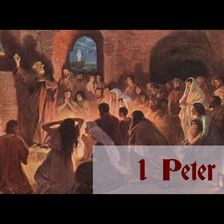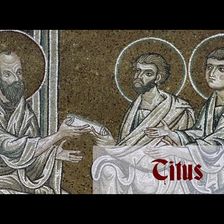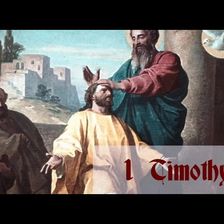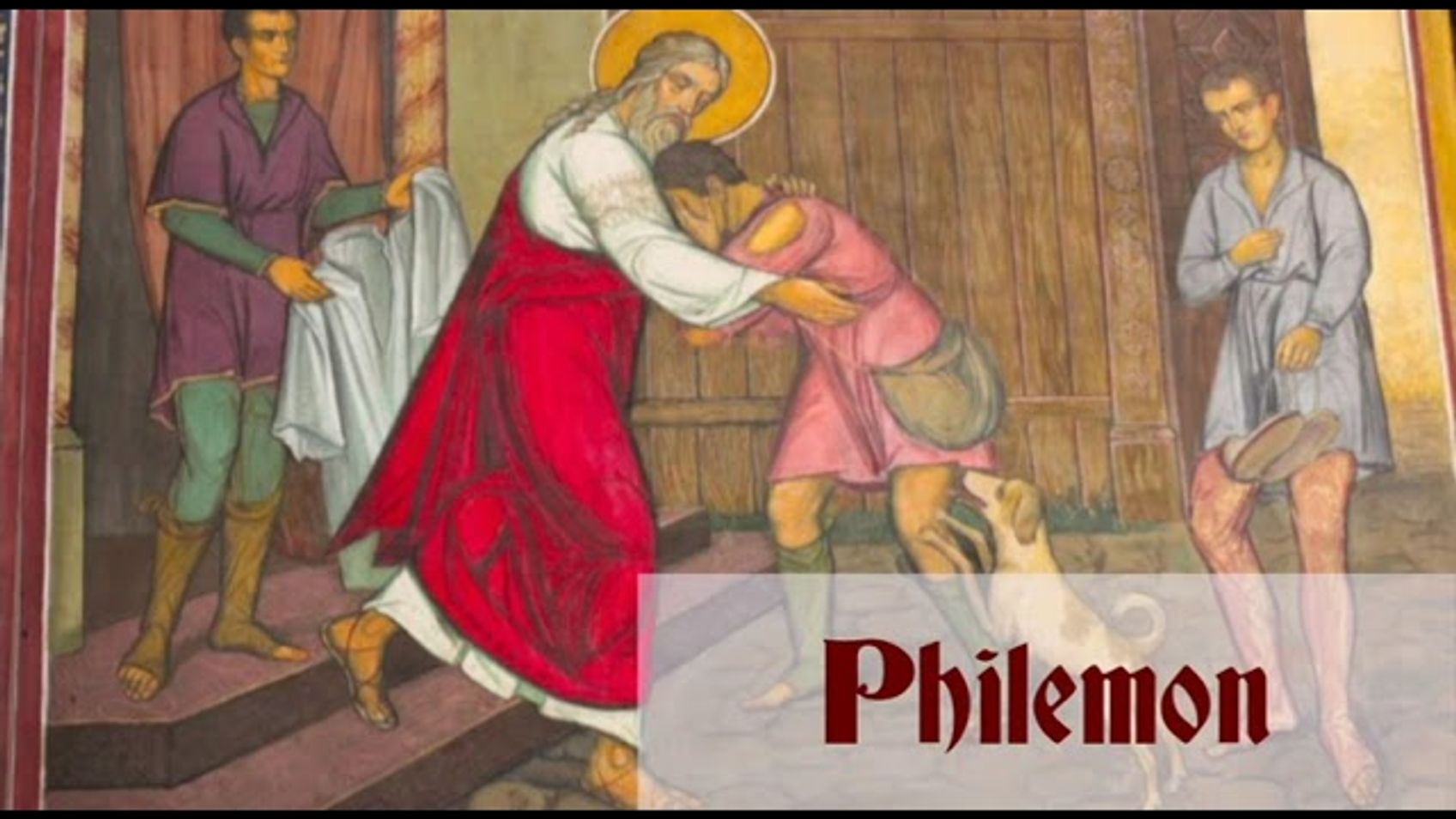Philemon: Chapter-by-Chapter Commentary
February 18, 2022

Alastair Roberts
*CONTENTS*
00:00:00 - Returning Onesimus to Philemon
If you have enjoyed my videos and podcasts, please tell your friends. If you are interested in supporting my videos and podcasts and my research more generally, please consider supporting my work on Patreon (https://www.patreon.com/zugzwanged), using my PayPal account (https://bit.ly/2RLaUcB), or by buying books for my research on Amazon (https://www.amazon.co.uk/hz/wishlist/ls/36WVSWCK4X33O?ref_=wl_share).
The audio of all of my videos is available on my Soundcloud account: https://soundcloud.com/alastairadversaria. You can also listen to the audio of these episodes on iTunes: https://itunes.apple.com/gb/podcast/alastairs-adversaria/id1416351035?mt=2.
More From Alastair Roberts

1 Peter: Chapter-by-Chapter Commentary
Alastair Roberts
February 18, 2022
*CONTENTS*
00:00:00 - 1 Peter 1.1-21: Born Again to a Living Hope
00:11:13 - 1 Peter 1.22—2.10: Built Up as a Spiritual House
00:24:17 - 1 Peter 2.11—

2 Peter: Chapter-by-Chapter Commentary
Alastair Roberts
February 18, 2022
*CONTENTS*
00:00:00 - Chapter 1: The Prophetic Word More Fully Confirmed
00:14:31 - Chapter 2: False Prophets and Teachers
00:30:03 - Chapter 3: The C

2 John: Chapter-by-Chapter Commentary
Alastair Roberts
February 18, 2022
*CONTENTS*
00:00:00 - Letter to the Elect Lady
If you have enjoyed my videos and podcasts, please tell your friends. If you are interested in support

Titus: Chapter-by-Chapter Commentary
Alastair Roberts
February 18, 2022
*CONTENTS*
00:00:00 - Chapter 1: Qualifications for Elders
00:13:38 - Chapter 2: Sound Teaching
00:28:19 - Chapter 3: Final Exhortations
If you have

2 Timothy: Chapter-by-Chapter Commentary
Alastair Roberts
February 18, 2022
*CONTENTS*
00:00:00 - Chapter 1: Guard the Good Deposit Entrusted to You
00:12:38 - Chapter 2: A Faithful Soldier and Worker
00:29:16 - Chapter 3: Apo

1 Timothy: Chapter-by-Chapter Commentary
Alastair Roberts
February 18, 2022
*CONTENTS*
00:00:00 - 1 Timothy 1.1-17: Paul's Charge to Timothy
00:15:23 - 1 Timothy 1.18—2.15: Properly Conducting Worship
00:40:03 - 1 Timothy 3: Q
More on OpenTheo

Why Are So Many Christians Condemning LGB People Just Because of How They Love?
#STRask
January 15, 2026
Questions about Christians condemning LGB people just because of how they love, how God can expect someone to be celibate when others are free to marr

Life and Ministry in Charlotte and in the SBC with Clint Pressley
Life and Books and Everything
December 15, 2025
In a rare cultural anomaly that may never be repeated in our lifetimes, the current SBC President and current PCA Moderator live in the same neighborh

How Do We Advocate for Christian Policy Without Making the Government Interfere in Every Area of Life?
#STRask
November 20, 2025
Questions about how to advocate for Christian policy without making the government interfere in every area of life, and the differences between the mo

Why Would Any Rational Person Have to Use Any Religious Book?
#STRask
December 8, 2025
Questions about why any rational person would have to use any religious book, whether apologetics would be redundant if there were actually a good, un

Did Jesus Prove He Wasn’t Sinless When He Overturned the Tables?
#STRask
December 29, 2025
Questions about whether Jesus proved he wasn’t sinless when he overturned the tables, whether Jesus’ response to the Pharisees in Mark 3:22–26 was a b

What Do You Think About Churches Advertising on Social Media?
#STRask
January 19, 2026
Questions about whether there’s an issue with churches advertising on social media, whether it’s weird if we pray along with a YouTuber, and whether C

Lora Ries: Border Security and Immigration Policy
Knight & Rose Show
December 7, 2025
Wintery Knight and Desert Rose welcome Lora Ries to discuss border security and immigration policy. They explore Biden's policy changes, like ending R

How Can We Know Who Is Teaching the Same Gospel Paul Taught?
#STRask
February 16, 2026
Questions about how we can know who is teaching the same gospel Paul taught, and whether or not Jeremiah 1:5 supports the idea that we pre-existed in

Conservatism and Religious Freedom with John Wilsey
Life and Books and Everything
October 27, 2025
What is conservatism? And why does it go hand in hand with religious freedom? How should we think about the American experiment of ordered liberty? Ha

E. Calvin Beisner: Climate and Energy Policy
Knight & Rose Show
January 4, 2026
Wintery Knight and Desert Rose welcome Dr. E. Calvin Beisner to discuss climate and energy policy. They explore Biblical dominion and stewardship, con

Christmas Cranks and Christmas Blessings with Justin Taylor and Collin Hansen
Life and Books and Everything
December 17, 2025
If you are looking for a podcast where three friends talk about whatever they want to talk about and ramble on about sports, books, and grievances, th

Does God Hear the Prayers of Non-Believers?
#STRask
February 26, 2026
Questions about whether or not God hears and answers the prayers of non-believers, and thoughts about a church sign that reads (as if from God), “Just

Can You Recommend Good Books with More In-Depth Information and Ideas?
#STRask
January 22, 2026
Questions about good books on Christian apologetics, philosophy, and theology with more in-depth information and ideas, and resources to help an intel

Can Two Logical People Come to Conflicting Conclusions Without Committing a Fallacy?
#STRask
January 8, 2026
Questions about whether two logical people can come to conflicting conclusions on a topic without committing a fallacy, how Greg, as a public figure,

What Are Some Good Ways to Start a Conversation About God with Family Members?
#STRask
October 30, 2025
Questions about how to start a conversation about God with non-Christian family members, how to keep from becoming emotional when discussing faith iss
